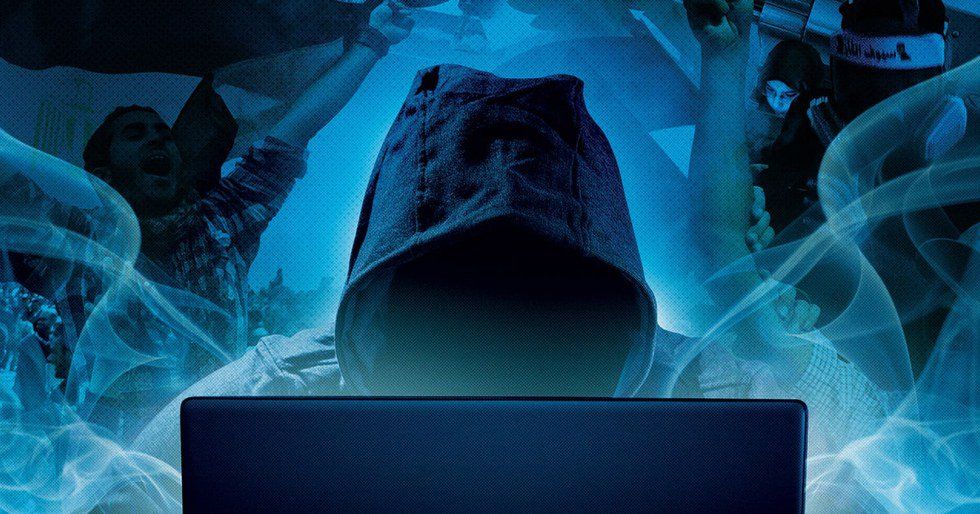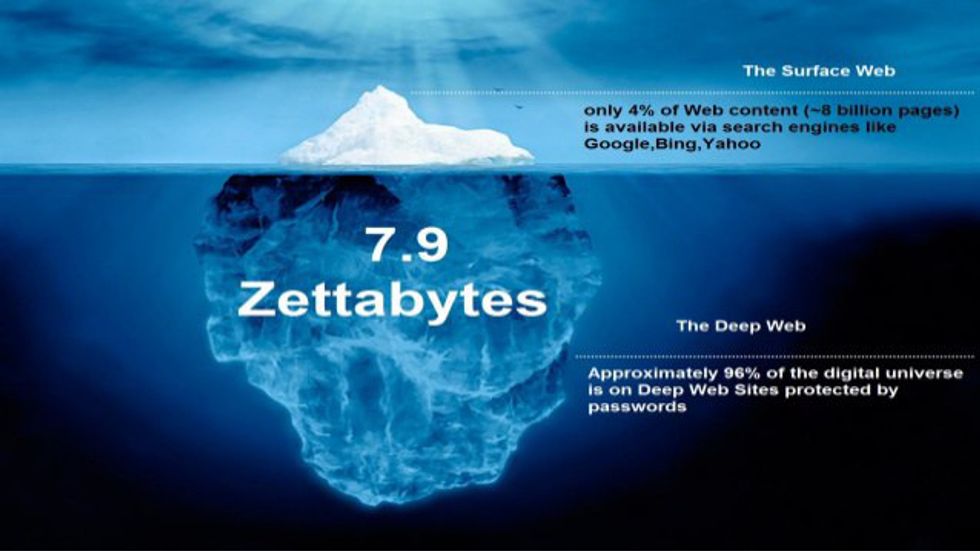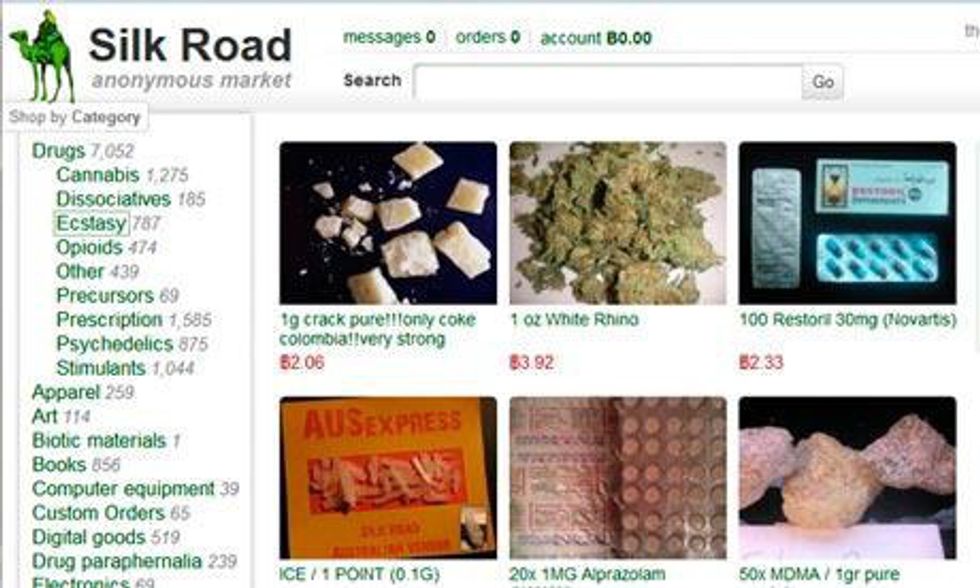Deep Web, Invisible Web, Dark Net-- they go by many names but they are all the same. The Deep Web is the part of the Internet that, in it's simplest terms, is inaccessible by standard search engines. It is all of the "un-indexed" content of the Internet.
The Deep Web is vastly larger than the World Wide Web. To put it's scale into numbers, a 2001 study concluded that there were over 200,000 Deep Web sites. Of that 200,000, 60 of these sites contain 750 terabytes of information-- that's about 40 times the size of the surface Internet.
This enigma of information can only be accessed through The Onion Router, or TOR, which is an anonymous network that routes it's information through international networks and protects the user's identity. Because of the anonymity, Deep Web users have been able to create websites that encourage the sale of illegal drugs, and in certain sites a user may be able to find something much more sinister.
Bonus fun fact: The US Navy created TOR as a way for browsing history to not get tracked back to the IP address. Confirming everything creepy and/or illicit has been created by the US government.
The fact that you can purchase a hit-man online scares the wits out of most people (understandably) and has given the Deep Web a bad rep. But like the Web itself, the importance of this undocumented space runs much deeper than it's illegal activity.
Last week I was given the gift of a Deep Web screening* by Columbus State's chapter of Young Americans for Liberty. The documentary tells the story of the Silk Road-- one of the largest black markets in the Deep Web.
Not only was this site fraught with Princess Bride references and dank kush-- it was a pillar of liberty and free expression.
"What?!" You shout, banging your fist into the desk-- angry that I could suggest that something as malevolent as the Deep Web might be aligned with a noble American ideal. Hang on there, Donald.
Silk Road's proprietor, The Dread Pirate Roberts (or, DPR) made many references to Libertarian ideas in his Silk Road newsletters.
“What we’re doing isn’t about scoring drugs or ‘sticking it to the man,'" said Roberts. "It’s about standing up for our rights as human beings and refusing to submit when we’ve done no wrong.”
The Silk Road was not a place for murder-for-hire, or perverts, or anyone with the intention of harming another human being. As far as Libertarian ideology goes, "the right to swing my fist ends where the tip of your nose begins."
The Silk Road stood up for our right to live our lives as we see fit. It's existence sent a message to an oppressive government that their power did not extend as far as they'd like. It was a message that it's people would not allow their government complete control. And though they shut down the website, many more sprouted in Silk Road's place.
The case I'd like to make for the Deep Web is that, hypothetically speaking, it isn't a place that we should fear, or advocate the control of. The Deep Web raises questions for the public about the people in power-- just how much power should we allow the government to have in our lives?
The Deep Web has been used for good. It has been used for communication by journalists in oppressed nations. It has been used by whistleblowers-- in our own nation. It is a place of great power, and of course that power comes with responsibility. But it gives users the basic human right of complete freedom-- living your life the way you want to live your life.
So before we hide from the Deep Web, fear the Deep Web, or elect leaders that promote more and more control of such a wild and beautiful creature (comparable to the free market, which politicians have already tainted) it is in our best interest to understand it.
Because it may just be freedom's final frontier.
*The author strongly recommends watching this documentary because it is "amaze-balls."























